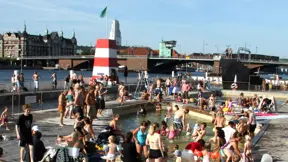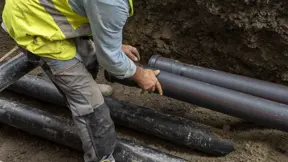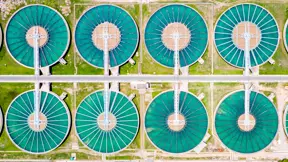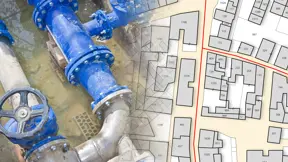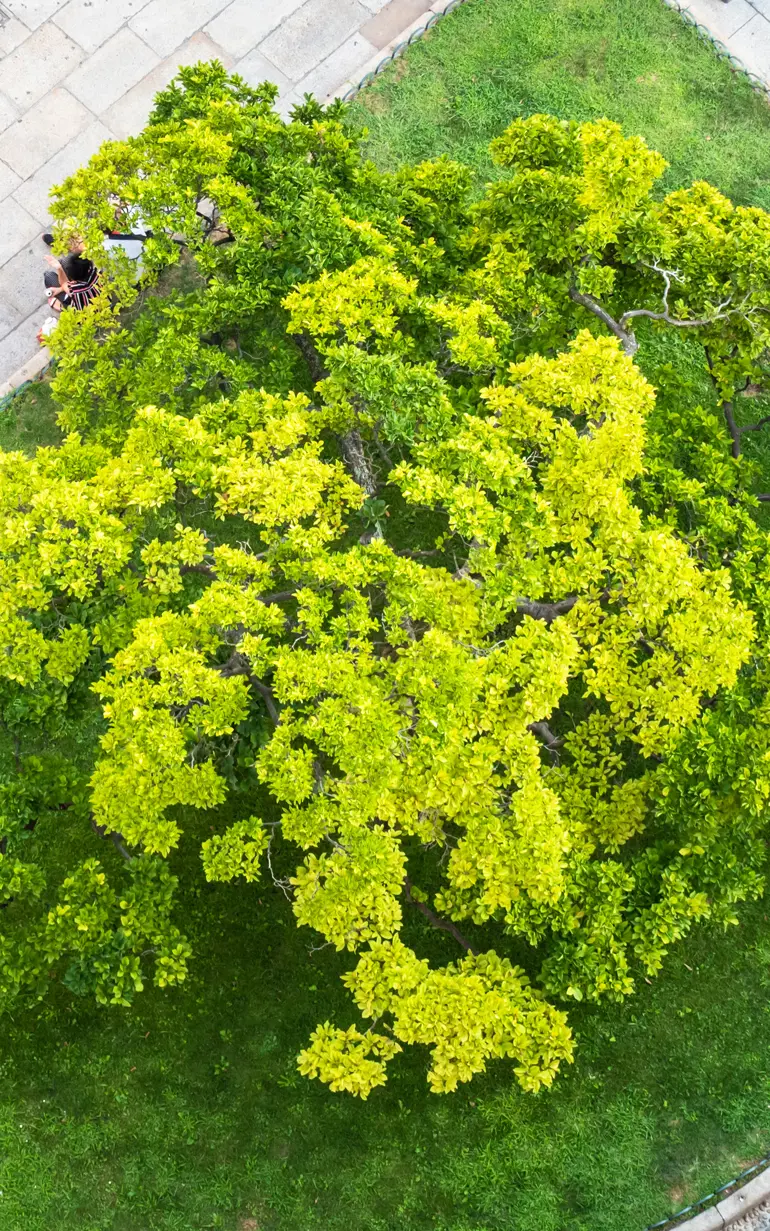
Planting smarter cities: Data-driven greening with 100KTREEs
Satellite data helps European cities optimise tree planting to improve air quality, biodiversity and resilience – one tree at a time.
As European cities grow, so does the need for smart, green infrastructure. Trees are one of the most effective and affordable tools for climate adaptation, but urban planners still lack the data and models to place them where they deliver the most value.
The EU-funded 100KTREEs project addresses this gap by developing a decision-support toolbox and a series of independent geospatial services. With DHI as project coordinator, the project team brings together satellite data, AI modelling and citizen engagement to guide strategic urban tree planting in real-world environments. 100KTREEs supports the EU’s pledge to plant 3 billion trees by 2030 and aligns with the ambitions of the European Green Deal.
Challenge
Trees improve city life in many ways, from cleaning the air to cooling heat islands, but their benefits depend heavily on where and how they are planted. Most cities lack the tools and knowledge to prioritise tree planting in areas with the greatest environmental, social or health impact.
At the same time, it is widely acknowledged that urban greening strategies must be backed by data: city leaders, funding bodies and citizens all expect transparent, evidence-based decisions. But measuring benefits like CO₂ absorption, canopy cover or accessibility to green spaces across entire neighbourhoods is no simple task.
Solution
The research project 100KTREEs combines remote sensing, modelling and co-creation by developing a comprehensive toolbox and a series of flexible tools to support smarter urban greening across Europe. DHI is leading the development of a series of satellite-based tools that enable large scale tree inventory assessments at city level, land cover assessments as well as a new agile solution to map the ‘3-30-300 rule’ at scale – a simple, science-based principle for greener cities.
In parallel, DHI has developed a new, flexible land cover mapping portal, FRAME (Fine-Resolution AI Mapping for Urban Environments), a web-based platform to make high-quality urban land cover mapping accessible to all.
Key components of the combined 100KTREEs toolbox will include:
- A spatial data lab that maps individual trees and canopy coverage using AI and Copernicus data
- A modelling engine that simulates ‘what-if’ scenarios for different tree planting strategies
- A citizen science app that invites residents to contribute data on tree health, location and accessibility
- Monetary valuation models to help build the business case for urban greening
- Co-creation workshops that bring city planners, researchers and citizens into the design process
The 100KTREEs project developed and tested six urban greening use cases – three in Denmark and three in Sofia, Bulgaria – to tailor its services to local needs. In Denmark, the focus was on transforming grey infrastructure into green spaces, modelling air quality improvements and identifying suitable tree planting locations. In Sofia, the emphasis was on identifying new planting areas, assessing the value of green corridors and evaluating schoolyard greening initiatives.
Danish stakeholders valued the tools for their ability to support climate adaptation and policy communication, while Sofia’s users highlighted the importance of socio-economic and health impacts.
Location:
Europe
Related SDG(s):
SDG 11: Make cities inclusive, safe, resilient and sustainable
SDG 13: Take urgent action to combat climate change and its impacts
Technology:
Earth Observation data
Project:
The 100KTREEs project is co-funded by the European Union’s Horizon Europe Programme under grant agreement No 101082551.

Expected results
With the 100KTREEs toolbox, city leaders will gain access to the insights they need to make confident, data-driven decisions about where, why and how to plant trees.
By quantifying the benefits of tree planting in terms of air quality, temperature regulation and proximity to public green spaces, the project outcome will support healthier, more liveable cities. And by putting a monetary value on these benefits, it will help secure financing and policy support for long-term greening strategies.
With intuitive tools and citizen engagement features, the project fosters inclusive planning and accelerates data-driven decision-making. Demonstration activities in Copenhagen and Sofia showcased the approach, and the goal is to scale 100KTREEs across Europe to support healthier, more resilient cities.
You may also like
How can we help?
With our global network of offices, we make sure you get the right answers to your local needs. Tell us about your water challenges and we will get back to you.
